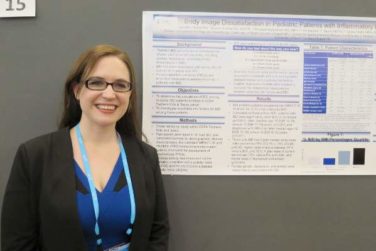AT A MEDPAC MEETING
WASHINGTON (FRONTLINE MEDICAL NEWS) – The Medicare Payment Advisory Commission is putting the finishing touches on a recommendation for a hybrid approach to reforming how Medicare pays doctors for drugs administered in the office.
If adopted by the Centers for Medicare & Medicaid Services, MedPAC’s recommendations first would refine the current system which pays physicians for Medicare Part B drugs based on the average sales price (ASP), then eventually would allow physicians to either remain in the improved ASP system or switch to a drug value program (DVP), a revamped version of the failed Competitive Acquisition Program.
Improvements to the ASP program, beginning in 2018, also would enhance manufacturer ASP reporting requirements, according to the proposed MedPAC recommendation.
Under the potential MedPAC recommendations, new drugs – those that do not have an ASP – would be paid at wholesale acquisition cost plus 3%, which MedPAC staff said is more in line the standard ASP plus 6%.
To help stem the impact of pricing increases, the proposal calls on manufacturers to provide additional rebates when ASP growth exceeds inflation. This approach is commonly used by states collecting Medicaid drug rebates.
Finally, the proposal would consolidate billing codes to help foster competition. The plan would combine billing codes for a brand name drug and all associated generics, as well as combining biosimilars with their reference biologic products. Commission staff highlighted two cases where combining codes for a biologic/biosimilar would have an impact: Medicare’s payment rate for the biosimilar filgrastim-sndz (Zarxio) declined by 20% during the first 6 quarters on the market while the reference product (Neupogen) remained static. Further, first quarter of pricing data on the biosimilar infliximab-dyyb (Inflectra) is 22% greater than the reference product (Remicade).
MedPAC is likely to recommend that as those changes go effect CMS develop the DVP, which would be voluntary beginning in 2022. In parallel with the launch of DVP, MedPAC is likely to recommend that CMS reduce the add-on percentage in the ASP program, as a stick to drive DVP participation.
Under the DVP, physicians would contract with one of a number of vendors that would negotiate prices for physicians and offer opportunities for shared savings.
Physicians would buy their drugs at the vendor-negotiated price from a network of wholesalers and distributors. Vendors would have additional negotiation tools such as formularies, step therapy, and prior authorization, and a price cap of 100% of ASP. Medicare would pay physicians at the DVP rate without any add-ons, but physicians would continue to receive fees for administrative services under the physician fee schedule or the outpatient prospective payment system.
The recommendations received general support from the MedPAC commissioners, but some of the finer details were met with concerns.
One was the possible impact of the ongoing budget sequestration, which lowers total payments from the government by 2%.
“I think the possibility that the sequester will still be in effect really casts a pall over proposals like [wholesale acquisition cost plus 3%], and we just have to think about what wording we’re going to use,” Commissioner Paul Ginsburg, PhD , of the Brookings Institution, said. “We realize that if a sequester is still in effect, we might have to make a temporary change.”
Another aspect of the DVP that raised questions was an arbitration process that would allow prices to be challenged for sole-source products.
Commissioner Amy Bricker, vice president of supply chain strategy at Express Scripts, said she was “not in favor of the arbitration,” questioning its administrative burden, cost, and turn-around time for decisions. She added that rather than arbitration, “I would like to see us provide incentives to manufacturers to bring competition to the market versus trying to create a system that doesn’t exist today for us to go to court.”
Regarding the DVP, Commissioner Jack Hoadley, PhD , research professor at Georgetown University, Washington, said that he is “not convinced that this process is going to work,” but acknowledged the MedPAC staff’s work in developing it. “It does feel like it’s worth putting out there and trying to see if it happens or trying to set it up to happen.”
MedPAC Vice Chairman Jon Christianson, PhD , of the University of Minnesota, Minneapolis, concurred. “I think we should go ahead and continue to explore that, but maybe temper our enthusiasm a little bit,” questioning how effective multiple groups would be in negotiating separately for Medicare drug pricing.
Commissioner William Hall, MD , of the University of Rochester, N.Y., also questioned the effect on patients. “Do any of these manipulations really have a direct correlation to quality of care for the patient population that is most affected by Part B?” he asked.
MedPAC staff will take the commissioners’ comments on these options and refine them for the upcoming March 2-3 meeting and will present the final recommendations to the commissioners to vote on in April for inclusion in the June report to Congress.





